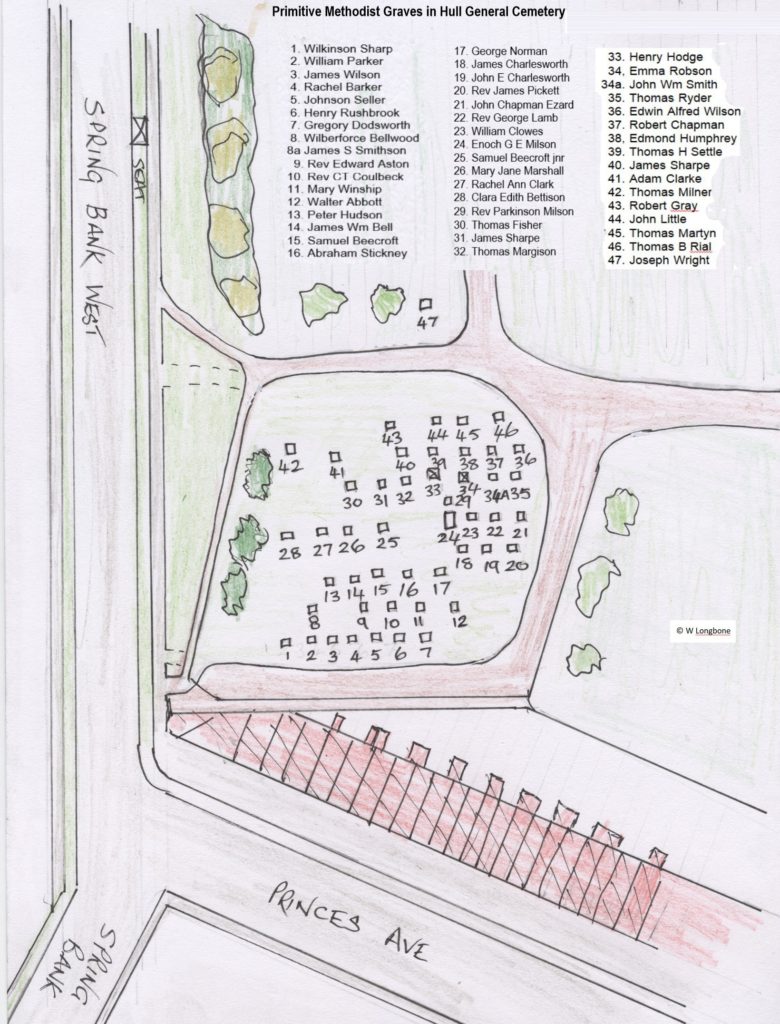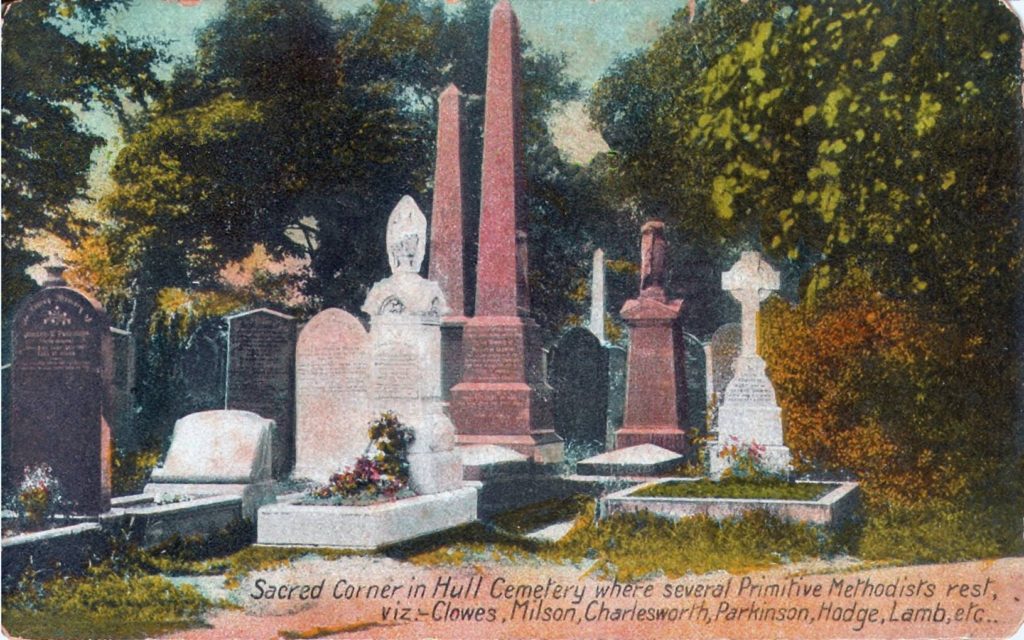What is known locally as ‘Prim Corner’ in the Hull General Cemetery lies at the south east corner of the cemetery. Initially it would have been to the left of the main gates when they opened on to Prince’s Avenue. Indeed much of it would eventually lay behind the old famous Dugglebys’ Toy Shop which many local residents might remember. ‘Prim Corner’ can now be easily accessed at the eastern most corner of the cemetery but reaching it via the gates on Spring Bank West and walking east is recommended, if only to see the cemetery in general..
But why ‘Prim Corner’? For this we have to cast our thoughts back to the English history of the 15 and 1600s. These times were marked by religious turmoil between Catholics and Protestants. Henry VIII had split the country from the Catholic church and established the Church of England. However, various following monarchs were known or thought to have catholic leanings which produced disquiet in much of England’s population. This lead to a strengthening of the Protestant churches rites of worship which as a result became more formulaic, a situation which did not suit many worshipers. Enter the Nonconformists or Dissenters, groups of people who did not want to conform to the governances of the Church of England.

These Nonconformist groups included, among others, Presbyterians, Congregationalists, Baptists, Anabaptists, Calvinists, Methodists, Unitarians, Quakers, Plymouth Brethren and English Moravians. These groups can be divided into old and new Nonconformists. The Methodists, arising in the 1700s, are considered a new group while the Quakers are an old group from the 1600s. Both of these groups are prominently represented in the Hull General Cemetery.
From about 1810 an offshoot of Methodism (formed by the Wesley brothers) was the Primitive Methodists. Lead by Hugh Bourne and William Clowes this group remained separate until reunited with the scion group in 1932. The Primitive Methodist movement sprung from the lower orders of the work force; miners, factory workers etc and gave them a sense of self worth. Like all nonconformist groups they suffered at the hands of the establishment. Hull, following its rejection of Charles 1st at the Beverley Gate and its adherence to Parliament, became a rather nonconformist town and Methodism became an important feature of its religious life.
So what of ‘Prim Corner’? The name ‘Prim Corner’ originates from the fact that not only is William Clowes, a founder of the Primitive Methodist movement, buried here but also many other Reverends of that church. However, a great number of other graves in this corner could be those of non Primitive Methodists. An interesting area for further research?
Chris Coulson 2019.
Over the years ‘Prim Corner’ became neglected and overgrown, but in early 2019 to commemorate the bicentenary of William Clowes first mission to Hull, the volunteers of The Friends of Hull General Cemetery carried out a clean-up of the area, and a service was held by the Clowes Memorial Methodist Church.
One of those buried in ‘Prim Corner’ is Henry Hodge the great great grandfather of Jane Payne; Jane is a founder member of Friends of Hull General Cemetery. Henry who was born in Kilnsea in 1812 was a businessman, an active Primitive Methodist, and great benefactor to Hull. Henry, his wives Jane & Emma, daughter Emma, son Edwin and son in law Joseph Robson are all buried in the ‘Prim Corner’. His brother William Hodge, who became mayor of Hull, and his family also have a large monument in the cemetery.

